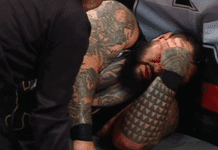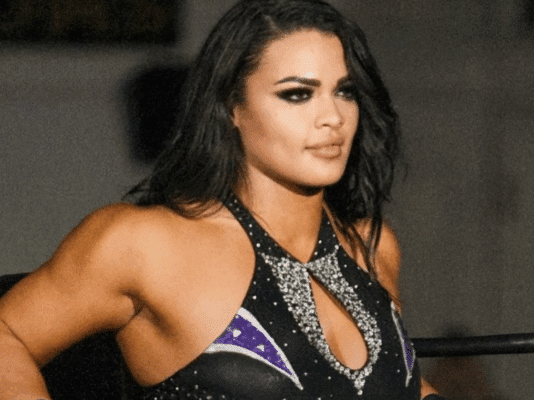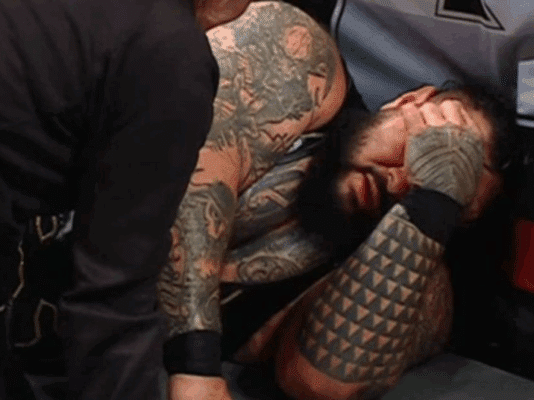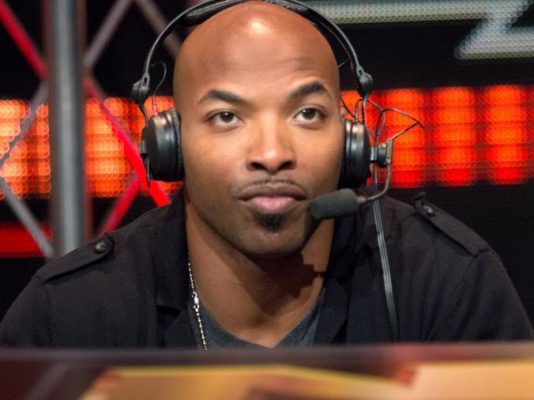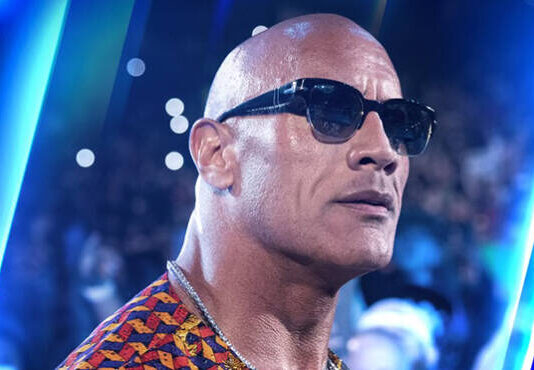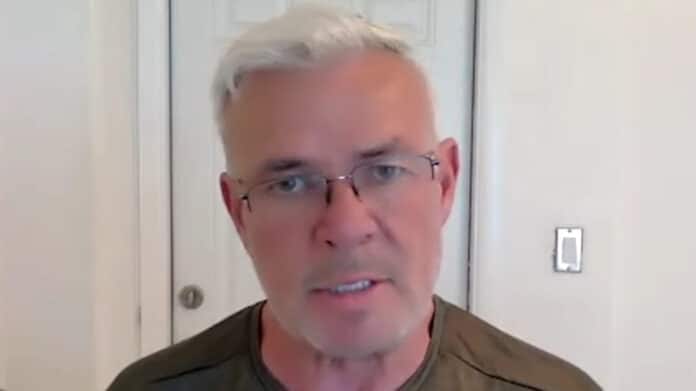
WWE Hall of Famer and former WCW President Eric Bischoff took on an episode of his 83 weeks podcast, where he talked about a number of topics including what he expects to see when SmackDown transitions from FOX to the USA Network.
Bischoff said, “Well it’s always — you know, I was there for the premiere of SmackDown on FOX. And obviously, that was a different situation. It was the first time WWE was going to have a regular schedule on primetime on a major network. That was a big deal, but this is equally as big. Because you want the audience to look at this as an opportunity, as an improvement, as a step up. And it’s hard to do when you’re going from a platform like FOX and a network like FOX to a cable outlet. But it can be done, and you make up for it in creative. You make it important. You make people feel like this is a step up. You do everything you can to attract some attention, to get them to sample you if they haven’t sampled you in a long time, and stick around afterward. It’s no different than any other TV show.”
On WWE cutting back on house shows:
“It’s really been going on for a while, as you pointed out. But I remember back in 2019 when I first went to work as a director of SmackDown. In that role, presumably I touched every facet of the SmackDown brand, including live touring. Now when I say I touched it I didn’t run it, I didn’t manage it, but I was fully up to speed on all the different aspects of the touring schedule as it related to SmackDown and SmackDown talent. And sitting in a couple of those meetings early on, like within my first week or 10 days — sitting in a few of those meetings where live events were being discussed at that time. Again, this is pre-COVID, this is still 300-plus dates a year, that traditional WWE live touring model, I guess. But even then, there was a lot of conversation about, ‘Look, these things are just not profitable. If we’re lucky and we route properly and everything goes according to plan, we may break even and make a couple of bucks.’ So it doesn’t surprise me. And then certainly when COVID hit us, everybody was forced to reevaluate their touring model, right? And it’s almost like people during COVID, when they got used to working from home, and companies got used to their employees working from home. What looked like an extreme kind of temporary solution, became normal course of business for a lot of companies. We’re slowly seeing that kind of goes back in some respects to what it used to, but it’ll never go back. And I think after COVID, I thought to myself, ‘Now they’re going to be forced’ — they meaning everybody in the wrestling business that’s in a touring element of it, are going to have to really reevaluate. And this does not surprise me. This does not surprise me.”
On the lack of profit in live events:
“Live events — you know, that was one of the first things that I did when I took over WCW was cancel live events for the very same reason. They were either marginally — and WCW’s case, they weren’t even marginally profitable. We lost money every time we went out the door. My solution was, ‘Stop it. Put a tourniquet on this shit before the patient dies. Stop the bleeding.’ And we did, and this is a version of that. You’re looking at that touring model, which is such an expensive part of the business model. But it’s also kind of a necessary evil, because talent’s gotta stay in shape, they’ve gotta get their reps in. And they’ve gotta learn, they’ve gotta grow. They’ve gotta get that experience in front of a live audience, and sometimes that’s not experience you want to get when there’s a camera on you. You can’t try new things, right? You can’t lay out a different type of match, and you don’t have the ability to learn the art of manipulating the crowd. That’s such an important part of it. So even when live touring is marginally profitable or even breakeven, it still has a lot of value as it relates to the entire business. Because you’ve got to grow your talent, and you’re not going to be able to do it at NXT. You’re not going to be able to do it in a sound stage.”
On the possibility of WWE doing residencies:
“To your question, do I see a residency? I absolutely do see a residency. I see them — again, not trying to create a parallel path here. But you know, Brian Badal was really the advocate that wanted a residency back when we were attempting to buy WCW. It was Brian Badal who felt strongly about a residency for economic reasons. It’s just cheaper to get people in and out of Las Vegas. Accommodations are easier to manage. There are so many different reasons why Vegas makes sense back then, or made sense back then. Now even more so, particularly with the footprint the TKO has there with the UFC. I mean, they’re wired in that town. And I think that WWE should decide to use a residency to kind of make up for some of the experience the talent you know no longer is able to get on a 300-event yearly live event schedule, maybe they get those reps in in front of a real crowd that cycles through every week. It’s a different crowd, and it’s not like going to NXT or in TNA when we were down at Universal. Or even, you know, WCW early on at Disney and Universal. There you’re getting different crowds in every day, but you still have a fair amount of regulars. Particularly in TNA, you would see the same 30-40 people sitting in ringside every episode. And that’s cool in a way, but having that fresh turnover of crowd from different parts of the country is important. So I do see them phasing out live events or changing that element of their business model significantly. I do see a residency as part of that solution and opportunity, and time will tell.”
You can check out the complete podcast in the video below.
(H/T to 411Mania.com for transcribing the above quotes)

